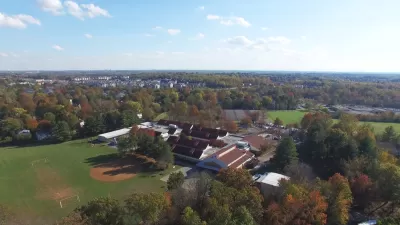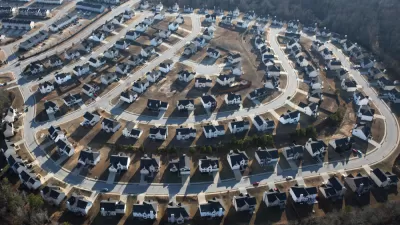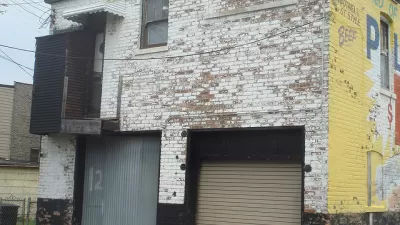New housing development is off to a slow start in Los Angeles in 2017. Although the city defeated an anti-growth ballot measure, LA is still faced with a number of policy and legal challenges to building an adequate supply of affordable housing.

Investigating the underlying reasons to why building more housing is so difficult, The Planning Report recently sat down with Randall Lewis of the Lewis Group of Companies to address Southern California’s challenges, and the opportunities for potential breakthroughs on housing production. A major force of health-oriented development and Inland Empire growth, the Lewis Group develops master-planned communities as well as shopping centers and industrial projects. Drawing on this unique perspective, Lewis offers his take on the underlying challenges that have prevented the production of housing supply adequate to meet Southern California’s increasing need.
Lewis, whose father created the Lewis Center for Regional Policy Studies, explained that CEQA misuse is the number one barrier to getting housing projects off the ground. As Lewis explains, "when CEQA is abused, it adds to the cost of doing business. Now, when you’re starting a new project, you have to factor in higher legal costs. You know you’re probably going to get sued by somebody, and it’s probably going to add at least a few months and many dollars, even if it’s a lawsuit without any merit. Here, if you have a good project—a non-controversial project—you would be lucky to get it through the entitlement process in a year. It would not be at all unusual for it to take 18-24 months—and if there are complexities, it could take a lot longer than that."
Additional costs and regulations, such as the current dispute between the U.S. and Canada on lumber prices have driven up the upfront costs. Higher densities also lead to more structural complications, fire issues, and drainage issues that are being solved on a project-by-project level.
To Lewis, solutions lie in the form of creating various housing types, maximizing spaces, and changing towards healthier lifestyles. His company is doing a series of communities called Harvest, which will all incorporate the growing of fruits, vegetables, and flowers. They’re planned to have edible landscaping, community gardens, and rich programming in partnership with the schools. To Lewis, this will engender the sense of community craved by so many, and help people in these communities live healthier and better lives.
On the policy side, Lewis promoted raising the FHA loan limit. As he explains:
In the Inland Empire right now, FHA limits are in the mid-to-high $300,000 range. But in a lot of areas, it’s very hard to find housing under $400,000 or even $500,000. That change would go very far, and a lot of people have worked for it. So far, HUD has shown no willingness. If the current administration becomes punitive to California on infrastructure funding, that could hurt us. We need to be diligent to make sure we get our fair share." - Randall Lewis
Lewis also promoted continual education of planning commissioners and city councilmembers, so that there is a good forum to share best practices and keep busy local electeds up-to-date on the housing needs of their community.
Read more of Lewis' solutions for Los Angeles in The Planning Report.
FULL STORY: Randall Lewis Opines on Barriers to Increased Housing Production

Maui's Vacation Rental Debate Turns Ugly
Verbal attacks, misinformation campaigns and fistfights plague a high-stakes debate to convert thousands of vacation rentals into long-term housing.

Planetizen Federal Action Tracker
A weekly monitor of how Trump’s orders and actions are impacting planners and planning in America.

In Urban Planning, AI Prompting Could be the New Design Thinking
Creativity has long been key to great urban design. What if we see AI as our new creative partner?

King County Supportive Housing Program Offers Hope for Unhoused Residents
The county is taking a ‘Housing First’ approach that prioritizes getting people into housing, then offering wraparound supportive services.

Researchers Use AI to Get Clearer Picture of US Housing
Analysts are using artificial intelligence to supercharge their research by allowing them to comb through data faster. Though these AI tools can be error prone, they save time and housing researchers are optimistic about the future.

Making Shared Micromobility More Inclusive
Cities and shared mobility system operators can do more to include people with disabilities in planning and operations, per a new report.
Urban Design for Planners 1: Software Tools
This six-course series explores essential urban design concepts using open source software and equips planners with the tools they need to participate fully in the urban design process.
Planning for Universal Design
Learn the tools for implementing Universal Design in planning regulations.
planning NEXT
Appalachian Highlands Housing Partners
Mpact (founded as Rail~Volution)
City of Camden Redevelopment Agency
City of Astoria
City of Portland
City of Laramie





























